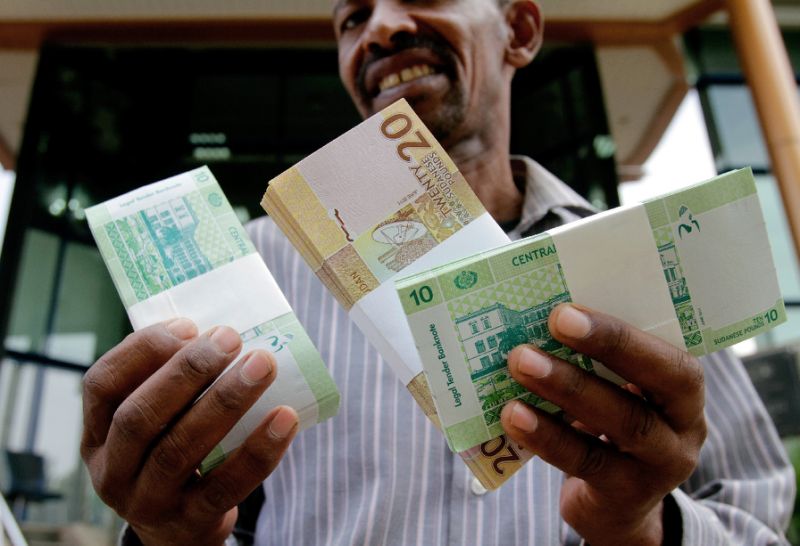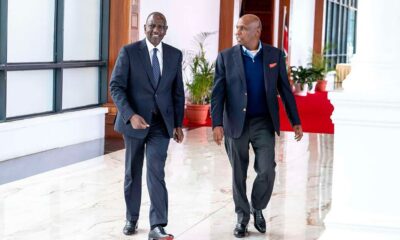Economy
Running on Empty: South Sudan Is Out of Foreign Exchange Reserves

South Sudan, battered by years of conflict and corruption, has run out of foreign exchange reserves and cannot stop the pound’s depreciation, a senior central bank official in the oil-producing nation said on Wednesday.
South Sudan gets almost all of its revenue from crude oil, but current output, at about 180,000 barrels per day (bpd), has plummeted from a peak of 250,000 bpd before the outbreak of conflict in 2013, according to official figures.
“It is difficult for us at the moment to stop this rapidly increasing exchange rate, because we do not have resources, we do not have reserves,” Daniel Kech Pouch, the bank’s second deputy governor, told a news conference.
South Sudan has three exchange rates – one from the central bank, from commercial banks, and from the unofficial market. Pouch said the rate for the pound from the central bank is 165 a dollar, from commercial banks about 190, and 400 from the parallel market.
In addition to lower oil production, corruption is also driving the crisis, said Brian Adeba, the deputy director of policy at United States-based watchdog The Sentry, which has released several reports documenting high-level corruption. The government has denied the findings.
“For a long time, egregious corruption and the deliberate destruction of institutional mechanisms for checks and balances have resulted in officials using the central bank as their personal ATM, so this [running out of foreign exchange] is not surprising,” Adeba told the Reuters news agency.
South Sudan ended five years of civil war in 2018 but disagreements between President Salva Kiir and First Vice President Riek Machar, who led the main rebel group, have stalled the conclusion of the peace process.
The war – marked by ethnic cleansing, extreme sexual violence and pockets of famine – displaced around a third of the population from their homes. The conflict killed an estimated 400,000 people and created Africa’s biggest refugee crisis since the 1994 genocide in Rwanda.
“The Bank of South Sudan and ministry of finance have created serious economic blunder by taking out the SSP reserve from the treasury and giving it to businessman … This is dangerous for the peace agreement because it will create fear,” said James Okuk, researcher at the Juba-based Center for Strategic and Policy Studies.
Kenya Insights allows guest blogging, if you want to be published on Kenya’s most authoritative and accurate blog, have an expose, news TIPS, story angles, human interest stories, drop us an email on [email protected] or via Telegram
-

 Investigations1 week ago
Investigations1 week agoBillions Stolen, Millions Laundered: How Minnesota’s COVID Fraud Exposed Cracks in Somali Remittance Networks
-

 News1 week ago
News1 week agoUS Moves to Seize Luxury Kenya Properties in Sh39 Billion Covid Fraud Scandal
-

 News1 week ago
News1 week agoMAINGA CLINGS TO POWER: Kenya Railways Boss Defies Tenure Expiry Amid Corruption Storm and Court Battles
-

 Investigations1 week ago
Investigations1 week agoJulius Mwale Throws Contractor Under the Bus in Court Amid Mounting Pressure From Indebted Partners
-

 Americas1 week ago
Americas1 week agoUS Govt Audits Cases Of Somali US Citizens For Potential Denaturalization
-

 Business2 days ago
Business2 days agoEastleigh Businessman Accused of Sh296 Million Theft, Money Laundering Scandal
-

 Business2 days ago
Business2 days agoEXPLOSIVE: BBS Mall Owner Wants Gachagua Reprimanded After Linking Him To Money Laundering, Minnesota Fraud
-

 Politics2 days ago
Politics2 days agoHow Ruto-Moi Deal Died After Temporary State House Ceasefire















